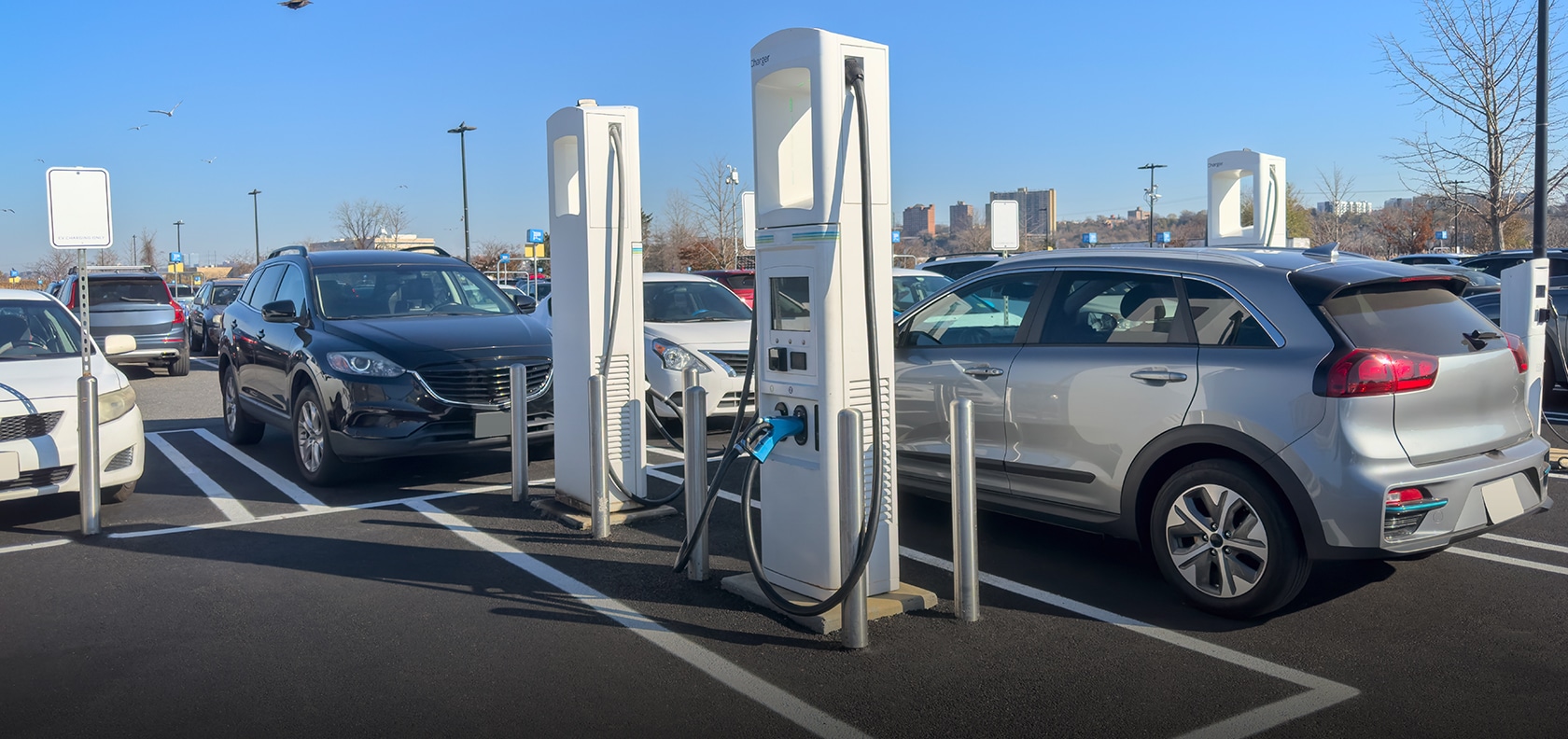With the global need to become more sustainable due to climate change, sales of electric cars (EVs) and hybrid vehicles continue to grow rapidly.
According to the International Energy Agency’s (IEA) annual Global EV Outlook , almost 14 million new EVs were registered globally in 2023, bringing their total number on the roads to 40 million. Ninety-five percent of EV sales in 2023 were in the United States, Europe, and China.
If you’ve been thinking about buying an EV or hybrid vehicle, you most likely have questions about how they work and how they’ll impact your daily life.
What are EVs and hybrid vehicles?
The U.S. Department of Transportation defines three types of EVs:
Battery Electric Vehicles (BEVs):
BEVs, also called “all-electric vehicles,” run solely on electricity and are recharged from an external power source. Most BEVs can travel at least 100 miles on a charge, but many vehicles can go further.
Plug-in Hybrid Electric Vehicles (PHEVs):
PHEVs use batteries to power an electric motor and are recharged from an external power source. PHEVs can drive moderate distances in what is called “EV mode,” which reduces gasoline use and emissions.
Fuel Cell Electric Vehicles (FCEVs)
FCEVs use an electrochemical process to convert hydrogen into electricity, which powers an electric motor. Current FCEVs do not recharge their batteries from an external source.
What are the benefits of owning an EV or hybrid?
There are many benefits to owning an EV or hybrid, such as protecting the environment and saving energy.

Cheaper to Fuel
With gas prices always fluctuating, having an EV can save drivers money.

EVs can be charged at home and at an estimated 40,000 public rapid charging stations nationwide. Alternative Fueling Stations in the United States can be found here.

Environmentally Friendly
When in electric-only mode, EVs produce no tailpipe emissions.

Tax Credits
Eligible new and used EVs may qualify for tax credits. To claim credit, you can work with the dealership or submit IRS Form 8936 when filing your taxes for the next calendar year.

Rebate Incentives
Some states offer rebate programs to reduce air pollution and greenhouse gas emissions. EV owners in Massachusetts can receive a credit from the Massachusetts Offers Rebates for Electric Vehicles (MOR-EV) program for their purchase or lease of eligible battery EVs and fuel-cell EVs.
What are the disadvantages of owning an EV or hybrid?
Although sales have increased, EVs are still more expensive to produce than traditional vehicles due to their specialized equipment. They can also cost more to repair because of new technology and the lack of mechanics trained to fix EVs.
According to the Office of Energy Efficiency & Renewable Energy, EVs have a shorter driving range than most conventional vehicles. While most can travel more than 100 miles on a single charge, some can travel more than 200 miles. By comparison, the average range gasoline-powered car can travel around 300-400 miles on one tank of gas. Another drawback to EVs is that fully recharging the battery can take 3 to 12 hours.
The installation of an EV charger at your home could cost about $2,000, but state rebates and even local utility companies offer incentives that can offset the cost.
What kind of insurance do I need for an EV?
Having an EV requires the same type of auto insurance you would have for a conventional gasoline-powered vehicle. Those mandatory coverages include:
- Liability coverage (Bodily injury to others)
- Property damage coverage
- Personal injury protection (PIP)
- Uninsured/underinsured motorist coverage
Optional coverages to drivers in Massachusetts include comprehensive coverage, collision and limited collision coverage, medical payments, optional Bodily Injury to others, substitute transportation, towing and labor.
Because EVs are more expensive to repair, you might consider adding the elite package endorsement if you live in Massachusetts. This endorsement is specific to Massachusetts auto policyholders and provides the following additional coverages:
- Collision and limited collision deductible savings program
- Original equipment manufacturer (“OEM”) parts coverage
- Mechanical parts replacement cost coverage
- Emergency travel expense
- Additional towing and labor coverage
- Accidental discharge of air bag coverage
Because of the cost to repair is often high, the OEM parts coverage listed above offers great value for EV owners. This coverage will pay to replace any vehicle part damaged in a crash, and which cannot be repaired, with a part manufactured or licensed by the original equipment manufacturer.
EV Charging Safety
The U.S. Fire Administration recommends having a licensed electrician install a new, dedicated circuit, for your EV charging device and Level II charging devices in your home. A dedicated circuit will reduce the risk of fire and electric shock when charging your vehicle. Older home wiring may also not be compatible with EV equipment.
When charging your EV, the U.S. Fire Administration recommends the following:
- Follow the manufacturer’s guidelines when charging your vehicle.
- Purchase a charging device that is certified by a nationally recognized testing laboratory.
- Plug Level-I EV chargers directly into an outlet designed to handle the amperage of the charging device.
- Do not use a multi-plug adapter or extension cord.
- Install a residual current device with the charging unit so that if a fault is detected, it will turn off the power.
- Place all charging device components out of reach of children when not in use.
- Do not use an EV charger with obvious signs of damage.
- Keep the EV charging station outlet covered when not in use and do not get water inside it.
We hope you found these tips on EVs helpful! Whether you are searching for an EV or if you already have one, rest assured that MAPFRE insures most EV vehicles. You can always have an independent agent in your state review your auto policy to make sure you have the right coverage suited to your individualized needs. If you’re not yet insured with MAPFRE and live in Massachusetts, you can always get a fast, free quote today on your Massachusetts car insurance policy.



